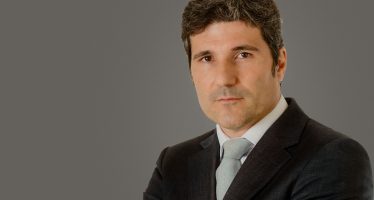FAMA Investimentos: Shared Economy Investment Opportunities that Meet the Highest ESG Standards

FAMA Investimentos logo
If, five years ago someone approached a fund manager and said: “I come from five years in the future and have valuable information. In my time, you can request a car or taxi ride via an app wherever you may be. There is no need to wait in the street, exposed to safety hazards and the elements. You do not need to exchange money for the service or waste time swiping your credit card. You don’t have to tell the driver your destination and, if you’re on a phone call, you don’t have to interrupt it; just hop in the car and off you go. You have never heard of the company that provides this service, but from the time I come from, there is no one who doesn’t use it.”
Supposing this fund manager had, among the top positions in his portfolio, a car rental company. He would probably wonder how dismal the fate of this company would be. Trusting that what the time traveller said was true, he would happily and immediately sell all the shares of the car rental company, believing that he had made the best decision to protect client capital.
While this story may seem farfetched, it is not far from reality. In May 2014, when Uber’s operations began in Brazil, there was no idea how big it would grow. Localiza – the nation’s largest car rental company – was inexorably pitting itself against a strong competitor, an innovative company that would offer high service, convenience and affordable prices.
Uber started operations in Rio de Janeiro, but nowadays is available in more than 100 cities, with 600,000 active drivers and 22 million users. Impressive penetration in just five years.
More striking, perhaps, is what happened to Localiza. Its market value grew from R$ 8 bn at that time to R$ 35 bn now, the highest in its history. In these 5 years, not only has the company’s fleet nearly tripled, but Localiza also acquired Hertz’s operations in Brazil.
How can this be possible? Isn´t it a nonsense that the company could deliver this sort of growth at such a time?
During these five years, Localiza was (and remains) the main holding of the fund that FAMA Investimentos manages. The story of the time traveller and Uber’s success dramatises the question we considered while holding our position in such a potentially adverse scenario. And the answer came from the ESG aspects of the company.
Our vision for ESG has been embedded in our investment culture and philosophy since our founding more than 25 years ago. Similarly, we seek to invest in companies whose culture is permeated by ESG factors as well.
For FAMA Investimentos, the key ESG-related metrics and KPIs are just quantitative data which, when segregated, contribute very little to the analysis. Trying to understand a company’s culture, its extent and its capillarity is much more subjective and abstract and requires not only multiple interactions with different stakeholders but also a lot of field work.
Back to Localiza. We have never had doubts about the company’s social and environmental concerns, as well as its very high level of corporate governance. It is natural for ESG-cultured companies to think very long term, as they are worrying about sustainability not only in the ‘green’ sense, but also – and especially – as it applies to their own business.
Thus, it was not difficult to understand that “urban mobility” and “shared economy” have long been priorities for Localiza. The company, contrary to conventional wisdom, probably celebrated Uber’s debut in Brazil, rather than feared it.
Consumer behaviour is changing – and changing fast. Many of the most desirable items for young people from a decade or more ago (motor car and home, for example) have changed dramatically, moving from ownership to shared use.
Companies that ignore this trend (or believe it will be restricted to expensive and high value-added goods) risk seeing their business decline, leading to a massive value loses for similarly inattentive investors.
Many still have a slightly outdated view of ESG, sometimes confusing it with impact investing, sometimes just thinking of better environmental indicators.
Incorporating ESG aspects leads companies to take fewer risks, be more mindful of changes in their industries and seize opportunities that are ignored by those focusing only on the short term. They will be doing the same as before but just in a much better way.
The trend of the shared economy is a reality and not restricted to value-added goods. Innovative companies, even in more traditional industries such as construction, have already adapted their business models to contemplate a world where using is worth more than owning; or that sharing on a condominium basis is beneficial for all. We could mention MRV, also in our fund, that positions itself ahead of the industry in Brazil, by rethinking the housing market.
Lower value goods are already starting to pop up between sharing initiatives. Clothing lending start-ups, while still incipient, already appeal to a fair portion of the population, especially the younger generation. We have little doubt that when this behaviour becomes more mainstream, we will see Arezzo, the largest Brazilian shoe retailer (yes, we have a holding) deeply involved in this area. This company is concerned with sustainability in all stages of its processes, is thinking about social issues, culture and the environment, and will be fully aware of yet another possible consumer move.
These examples are not exhaustive and may certainly become obsolete with the passage of time and as technology advances. But integrating ESG into the analysis greatly increases the chances of positioning FAMA Investimentos with the winners.
In such a dynamic world, making investments through simple old accounting and financial forecasts has become too obsolete, to say the very least.
You may have an interest in also reading…
GNB GA – Change, Challenge, and Reward: Portuguese Firm takes Teamwork to a Whole New Level
GNB GA, part of Novo Banco Group, is a leading asset manager in Portugal. The firm was born in 1992
Convergence Partners Executive Chairman Andile Ngcaba: Tech is at the Heart of Things for This Believer in the Power and Potential of the Internet
Technology has been Andile Ngcaba’s passion, hobby, and profession for four decades. “It’s been fun all along and I’ve been
Le Groupe La Poste: Committed to its Customers — and Sustainability
Since the 15th century, French postal service Le Groupe La Poste has been connecting the country, keeping pace with societal


















































































